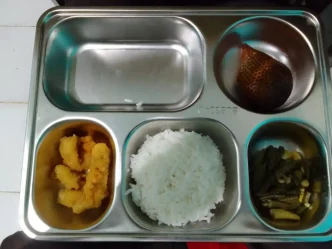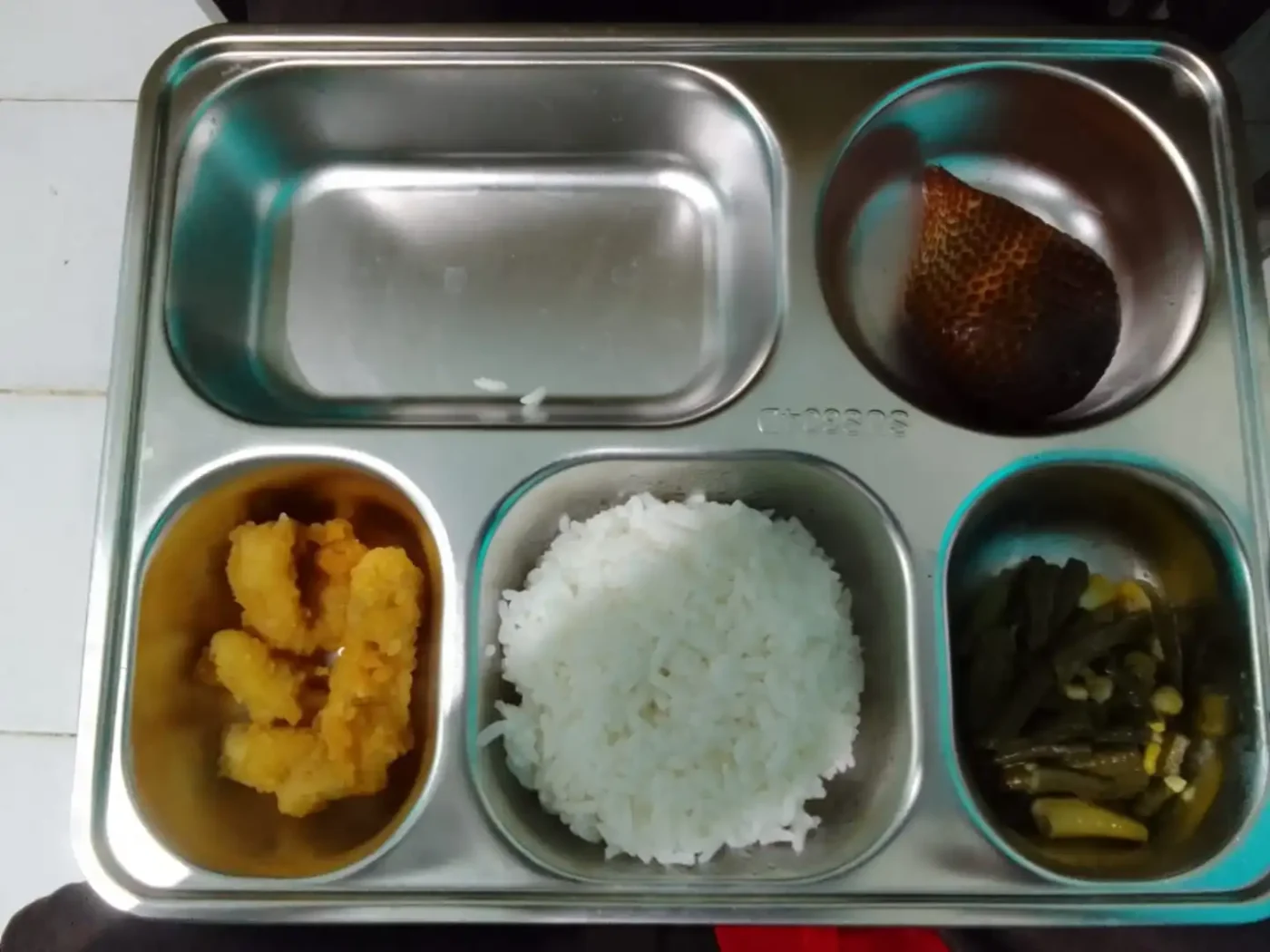Indonesia’s ambitious free meals program, a flagship initiative under President Prabowo Subianto’s administration, promises to provide daily meals to millions of schoolchildren and pregnant women across the archipelago. Launched with the dual aim of combating malnutrition and boosting educational outcomes, the program has been hailed as a transformative step for the nation’s future. Yet, as the rollout begins, mounting concerns over food safety and logistical challenges threaten to undermine its noble intentions, raising questions about whether this policy could inadvertently create a public health crisis.
Ambitious Goals, Daunting Challenges
The free meals program, which targets over 80 million beneficiaries, is one of the largest of its kind globally. With a budget of 71 trillion Indonesian Rupiah (US$4.5 billion) for its initial phase in 2025, the government aims to provide nutritious meals to schoolchildren and pregnant women, particularly in underserved rural areas of Java, Sumatra, and Kalimantan. The initiative is seen as a cornerstone of Prabowo’s pledge to address stunting, which affects nearly one in four Indonesian children under five, according to World Bank data.
However, the scale of the program has exposed significant gaps in infrastructure and oversight. Reports from pilot programs in Jakarta and other urban centers have highlighted issues ranging from inconsistent food quality to inadequate storage facilities. In some instances, meals delivered to schools were found to be spoiled due to delays in transportation or improper refrigeration. These early missteps have fueled fears that without stringent safety measures, the program could pose serious health risks to its intended beneficiaries.
Food Safety Under Scrutiny
Food safety experts have warned that Indonesia’s tropical climate, coupled with its sprawling geography, creates unique challenges for large-scale food distribution. Dr. Anita Sari, a public health researcher at the University of Indonesia, noted that “maintaining the cold chain for perishable items across thousands of islands is a logistical nightmare.” She added that “without robust monitoring, we risk outbreaks of foodborne illnesses, which could disproportionately harm vulnerable groups like children and pregnant women.”
Incidents of food poisoning linked to school meal programs in other countries, such as India’s mid-day meal scheme, serve as a cautionary tale. In 2013, a tragic incident in Bihar saw 23 children die after consuming contaminated meals, a disaster attributed to poor hygiene and oversight. While Indonesia has not yet reported such extreme cases, the potential for similar mishaps looms large. Local vendors contracted to supply meals often lack the training or resources to meet safety standards, particularly in remote areas where regulatory enforcement is weak.
Moreover, the program’s reliance on centralized kitchens to prepare meals for thousands of recipients has raised concerns about contamination during mass production. A single lapse in hygiene at a central facility could affect entire batches, potentially sickening hundreds or thousands of people. The Ministry of Health has promised to deploy inspectors to monitor kitchens, but with over 300,000 schools and health centers involved, critics argue that the current staffing levels are woefully inadequate.
Government Response and Public Sentiment
The Indonesian government has defended the program, emphasizing its commitment to addressing early challenges. Coordinating Minister for Human Development and Culture Muhadjir Effendy stated that “we are working tirelessly to ensure food safety through partnerships with local authorities and private vendors.” He also announced plans to allocate additional funds for training and infrastructure upgrades, though specifics on timelines and budgets remain unclear.
Public reaction has been mixed. In urban areas like Jakarta, parents have expressed cautious optimism, with many appreciating the financial relief the program offers. “This helps us save money on food for our children” said Siti Aminah, a mother of two in East Jakarta. However, others are skeptical about implementation. “I worry about the quality of the meals my child eats at school” said Budi Santoso, a father from Surabaya. Rural communities, meanwhile, report inconsistent delivery schedules, with some schools receiving meals only sporadically.
Social media platforms like X have amplified these concerns, with users sharing photos of substandard meals and tagging government accounts to demand accountability. The hashtag #MakanGratisAman (Safe Free Meals) has trended in recent weeks, reflecting growing public unease about the program’s execution.
Economic and Political Stakes
Beyond health concerns, the free meals program carries significant economic and political weight. The initiative is a key plank of Prabowo’s populist agenda, designed to shore up support among low-income families and rural voters who form a critical base for his administration. Economists estimate that the program could stimulate local agriculture by increasing demand for staple crops like rice and vegetables, potentially benefiting farmers across Java and Sumatra. Contracts worth billions of rupiah have already been awarded to suppliers, sparking debates over transparency in the tendering process.
However, if food safety issues persist, the political fallout could be severe. Opposition parties have seized on early hiccups to criticize the government, accusing it of prioritizing optics over execution. “This program risks becoming a liability if children fall ill” warned a spokesperson for the Indonesian Democratic Party of Struggle (PDI-P) in a recent press conference. With local elections looming in several provinces, the stakes for Prabowo’s coalition to deliver on this promise are higher than ever.
Looking Beyond Indonesia: Regional Lessons
Indonesia is not alone in grappling with the complexities of large-scale food programs. Across Southeast Asia, countries like Thailand and the Philippines have implemented similar initiatives with varying degrees of success. Thailand’s school lunch program, for instance, has been praised for its decentralized approach, empowering local communities to source and prepare meals. However, it too has faced challenges with funding and consistency in remote areas. The Philippines, meanwhile, has struggled with corruption scandals tied to meal procurement, underscoring the need for transparency in vendor selection.
These regional examples offer valuable lessons for Indonesia. Decentralizing food preparation to community levels could reduce logistical risks, though it would require significant investment in training and capacity building. Strengthening regulatory oversight and public-private partnerships may also help bridge gaps in infrastructure, ensuring that meals are both nutritious and safe.
A Path Forward Amid Uncertainty
As Indonesia’s free meals program expands, the government faces a delicate balancing act: delivering on its ambitious goals while safeguarding public health. The early challenges underscore the importance of rigorous planning and adaptability in a country as diverse and geographically complex as Indonesia. Without swift action to address food safety concerns, the initiative risks becoming a cautionary tale rather than a triumph of social policy.
For now, millions of families across the archipelago wait to see whether this program will fulfill its promise of a brighter, healthier future—or whether it will be derailed by the very challenges it seeks to overcome. As implementation continues, the question remains: can Indonesia turn this bold vision into a sustainable reality?
















